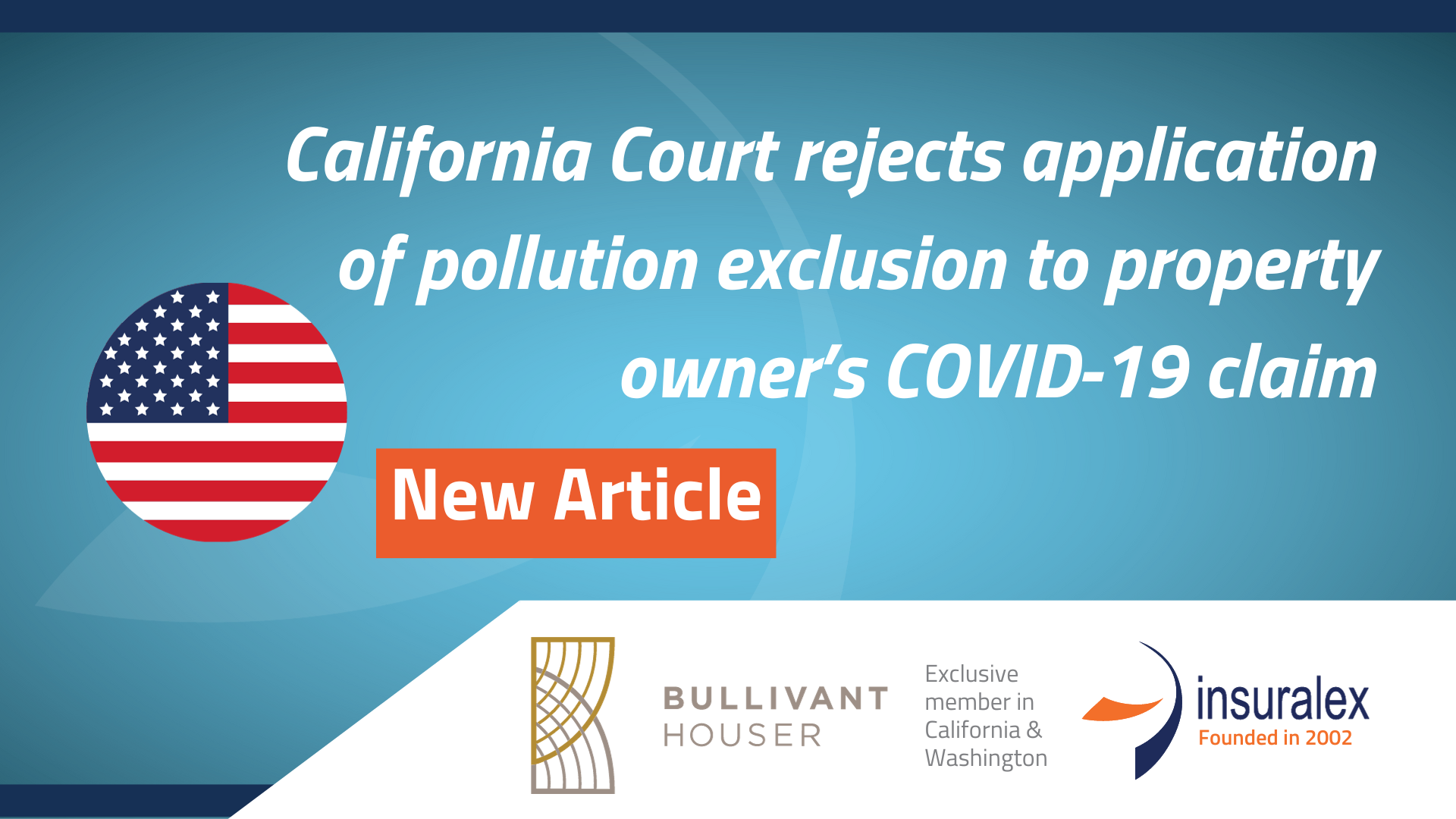
A panel of California’s Second District Court of Appeal ruled this week that pollution exclusions in a shared-and-layered property insurance program did not apply to alleged losses arising out of the presence of the SARS-CoV-2 virus across the insured’s portfolio of properties, even though the pollution exclusions defined “pollutants or contaminants” to include “virus.” The court interpreted the California Supreme Court’s 2003 decision in MacKinnon v. Truck Insurance Exchange as limiting application of pollution exclusions to “traditional sources of environmental pollution” (such as industrial accidents and other “environmental disasters”) no matter what specific type of “pollutant” or “contaminant” was involved in the loss. However, the court held that separate “pathogen” exclusions in some of the insured’s policies did apply to the policyholder’s claim.
In JRK Property Holdings, Inc. v. Colony Insurance Co., a real estate investment firm with a multi-state portfolio of properties sued its primary and excess property insurers in California over their denial of a claim for alleged Covid-related losses. The trial court granted judgment for the insurers on the pleadings, but the Court of Appeal reversed the judgment in part. In the unpublished portion of its opinion, the court concluded the policyholder had adequately alleged direct physical loss. In the published portion, the court addressed the insurers’ second line of defense, which was based on certain exclusions.
The policies excluded loss caused by “[p]ollution caused directly or indirectly by the release, discharge, dispersal, seepage, migration, or escape of pollutants or contaminants.” The policies defined “pollutants or contaminants” as any “solid, liquid, gaseous or thermal irritant or contaminant . . . which after its release can cause or threaten damage to human health . . . including, but not limited to bacteria, virus, or hazardous substances . . .” The court found “no question that COVID-19 is a virus.”
However, the court ruled that when read as a whole, the exclusion still only applied to “pollution” caused by “release, discharge, [etc.]” of dangerous substances; and that under MacKinnon, those terms embrace only traditional environmental pollution and not all losses that involve dangerous substances. The court concluded that “the spread of a virus due to the normal human activities of breathing and touching surfaces” does not fall within the ordinary sense of pollution. The virus component of the pollution exclusion would only apply when a virus is released into the environment by an industrial accident, such as “an environmental disaster at a plant” causing “the release of virus-laden sewage into the surrounding area.”
However, turning to the separate “pathogen” exclusions in two of the insurers’ policies, the court reached a different result. Neither of those exclusions referred to pollution. Consequently, the court held, those exclusions were not subject to MacKinnon and would apply regardless of whether a virus was released in an industrial accident or other instance of traditional environmental pollution.
The appellate panel in this case was the same panel of the Second District Court of Appeal that decided Marina Pacifica Hotel and Suites v. Fireman’s Fund, which also favored the policyholder on the interpretation of “direct physical loss” (at the pleading stage; Fireman’s Fund later prevailed at trial). Both rulings represent the minority view in California. As the panel acknowledged, the issue is before the California Supreme Court in other cases, and the Supreme Court will have the last word.
Furthermore, with respect to virus exclusions, JRK Property Holdings could be said to exalt form over substance. The court found no ambiguity in the term “virus” and no reason why an insurer cannot exclude coverage for loss caused by virus. The court rejected all but two of the defendants’ coverage positions only because in their policies, the word “virus” appeared inside a pollution exclusion, instead of in a standalone exclusion. That distinction in placement should not make a difference to whether a policyholder can reasonably expect coverage for pandemic-related losses.
 |
Andrew B. Downs |
 |
Samuel H. Ruby |



